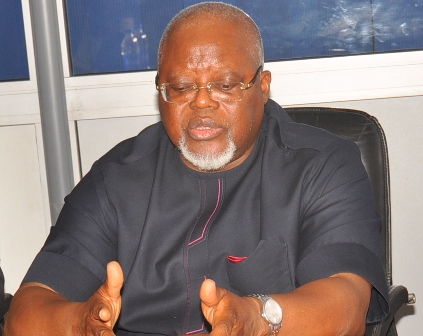President Muhammadu Buhari’s Administration has been called upon to take urgent steps to protect Nigeria’s automotive industry against unfair competition from imported used vehicles.
[dropcap]T[/dropcap]he Chairman of Nigerian Automotive Manufacturers Association (NAMA), who is also Managing Director of VON Automobiles Limited, Mr. Tokunboh Aromolaran, made the call on Tuesday at a press briefing held in Lagos.

Aromolaran lamented that the same factor that killed the nation’s auto manufacturing plants operating in the 70s is bedeviling the country again.
“We had about 5 to 6 booming auto plants in the 70s,” Aromolaran recalled, “They all died, because they couldn’t compete with imports from China and parts of Asia.”
He said all the nations that built successful auto industry in the past had to give them initial protection against unfair competition from imported vehicles.
He explained: “Various auto industries around the world, at their prime, enjoyed government protection, because such countries appreciate the fact that indigenous industries need protection to be able to compete in the world market.
“India, for a long time, shut its doors against any foreign car, because they did not want subsidized cars from other nations to shut down their own industry.
“For about six or seven years during which South Africa developed its auto industry, it jerked up duties to about 100%, a move that turned the market tide in favour of locally produced cars. What followed? OEMs(Original Equipment Manufacturers) bombarded South Africa. The country developed a full auto industry. BMW is there. Mercedes-Benz is there. Nissan is there. Volkswagen is there, all because for about seven years, fully-built up (FBU) vehicles were not allowed in to the country. As a result, all vehicles on the South African roads are built locally.”
Aromolaran, therefore, advised the federal government to do the needful by legalizing the auto policy and offer necessary protection to the indigenous auto manufacturers against unfair competition, so that they would not suffer the same fate as the demised Nigerian automotive plants, which operated in the 70s.
“We are building the industry again,” he said. “We are putting investments in place. So we need that protection, which is why the 70% import tariff is there.
According to Aromolaran, since the draft of the nation’s auto policy, which is still awaiting legal backing, Nigerian auto industry has achieved only a partial success, because various necessary tariff issues are not being applied as the policy envisaged it.
“An essential part of the policy,” he pointed out, “ is placing a ban on importation of Fully built up cars, a move that would enable auto assemblers to increase production volumes and sell at more affordable prices.
“If we can double our production, we are in a position to produce cars of which prices can compete with that of the imported second hand cars.
“And I’ll explain this. Whether I produce 10 cars or 1000 cars, my overhead cost is still about the same. Electricity Company will still bring N4 million bill monthly. I’ll still pay all my security guards. I’ll still maintain the entire infrastructure, whether I produce only one car or 1000.
“Therefore, if I am able to increase my production to say 1000 units, my products will be less expensive.”
Aromolaran, therefore, asked the government to shut the borders against imported cars and then challenge the indigenous auto assemblers to double their production.
“I can drop my prices, because I can recover my overhead cost at a lower rate.”




